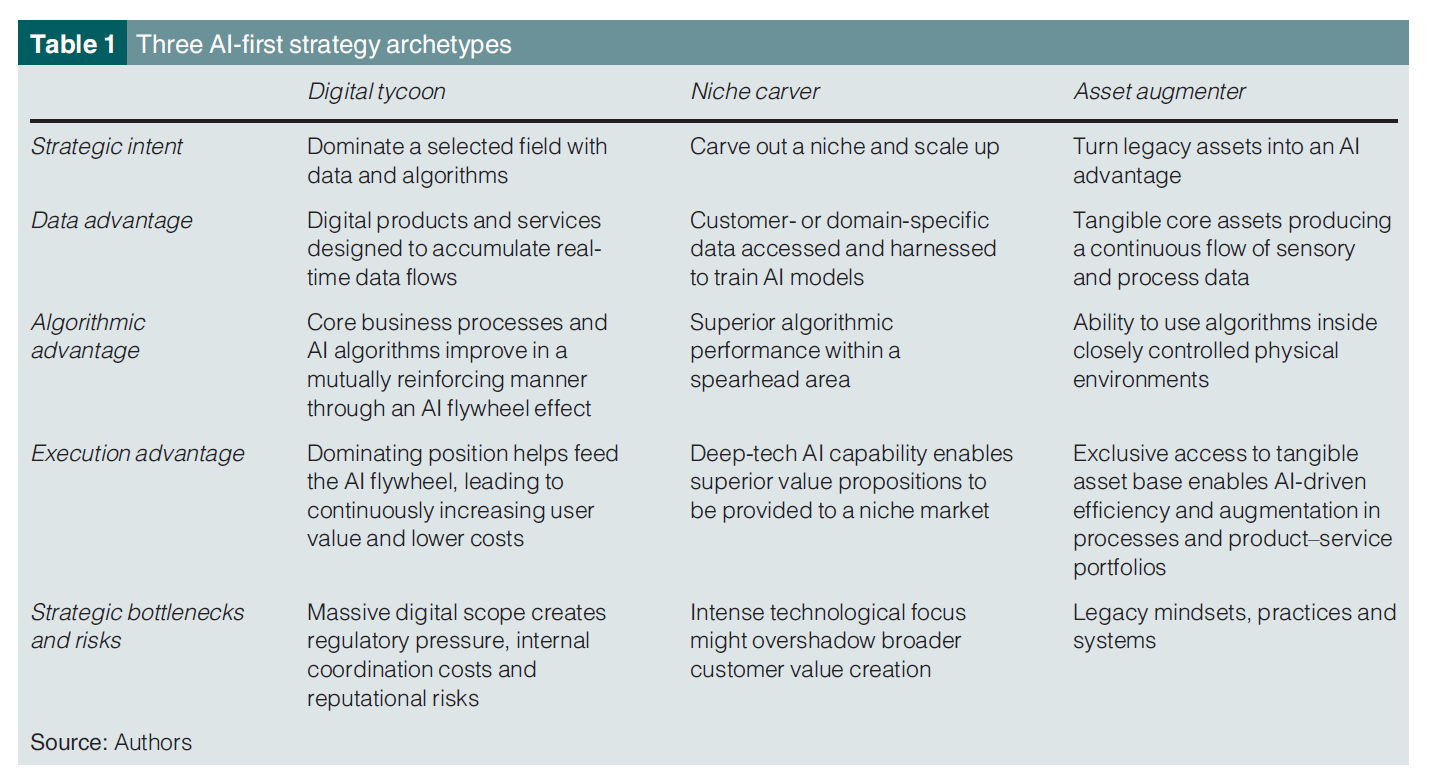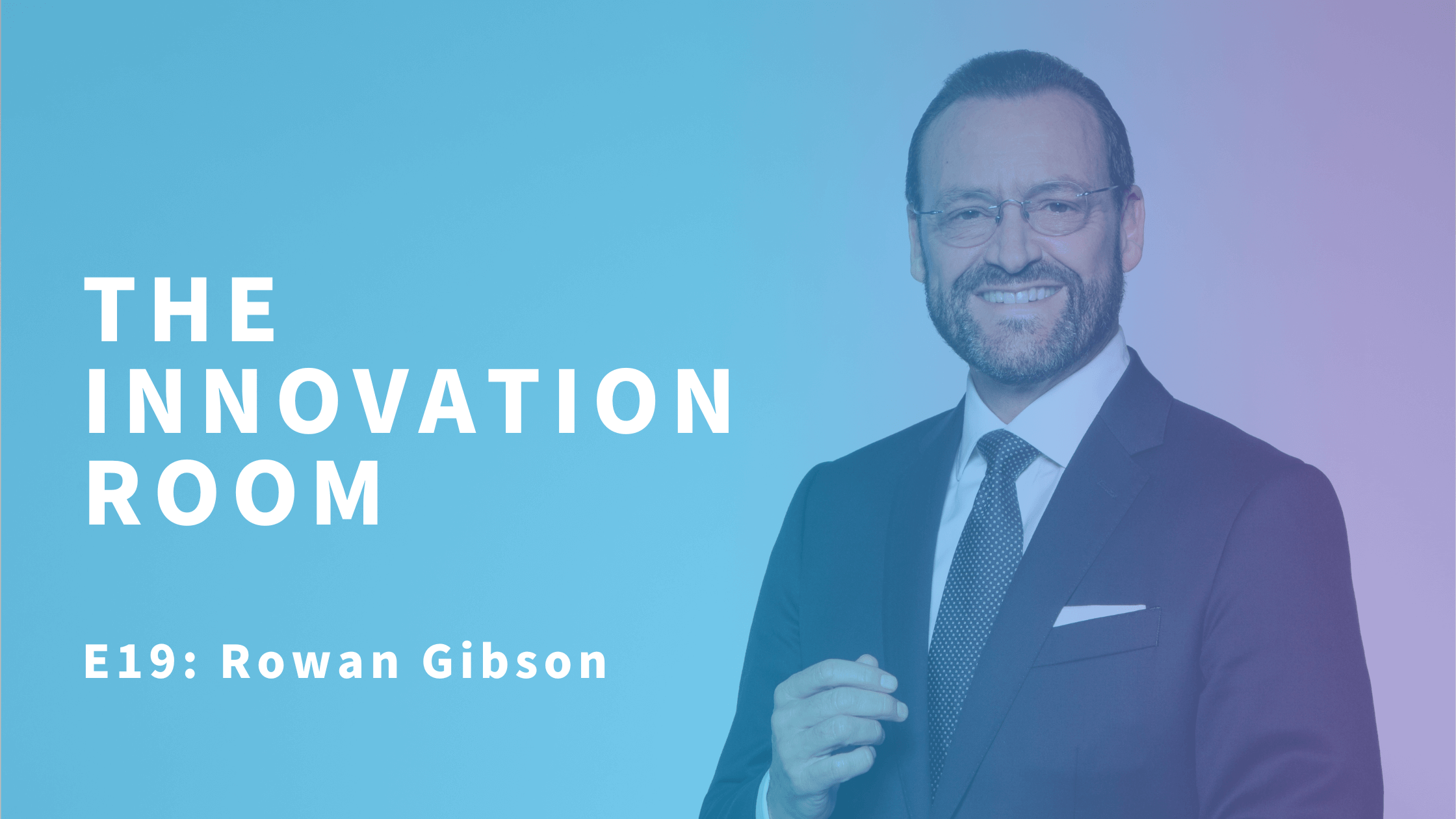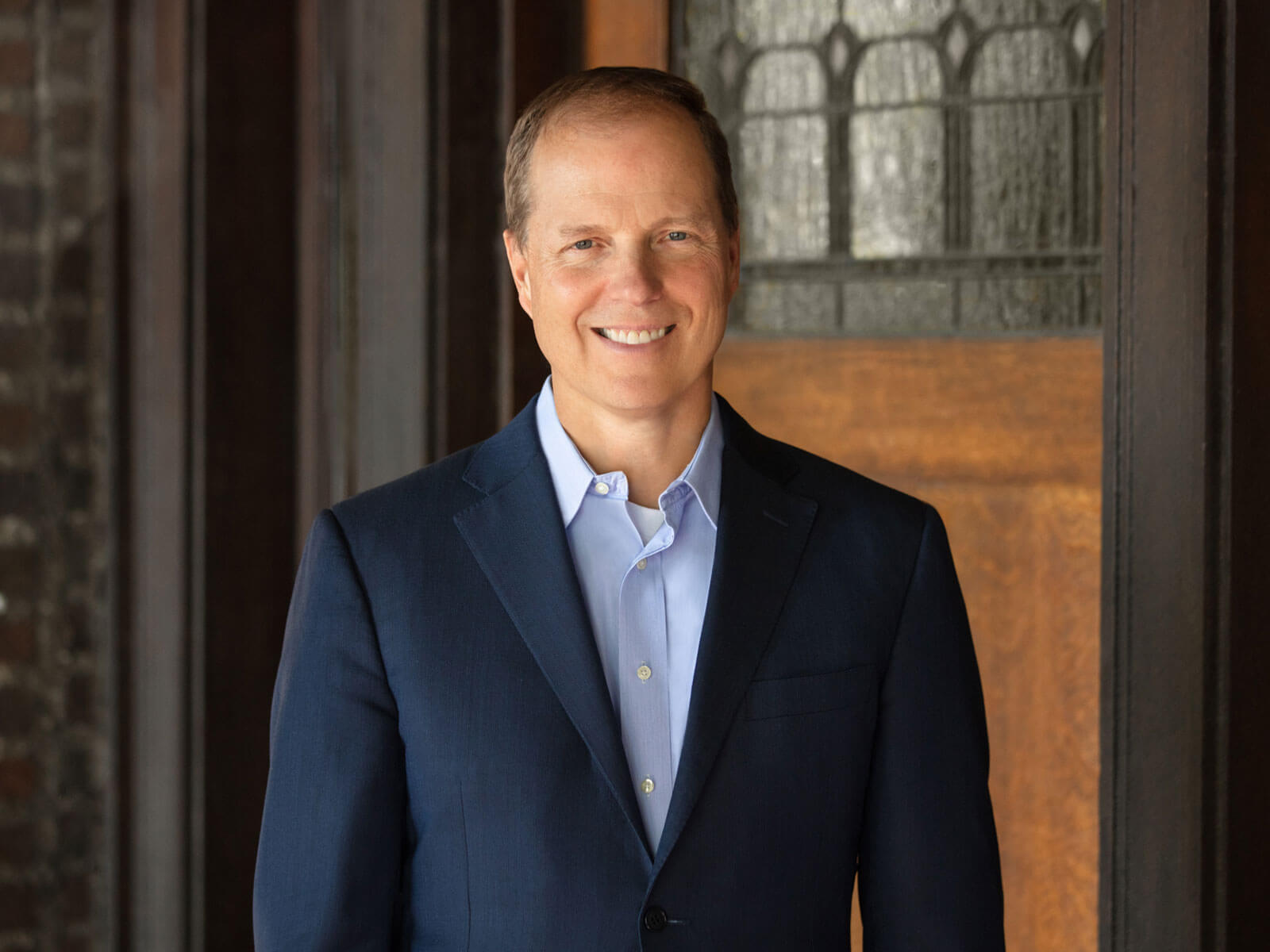The AI-First Strategy With Paavo Ritala
In recent years, the topic of AI has been tirelessly running across many minds. So, it only makes sense that we kick off the newest season of the Innovation Room podcast with a dive into the world of AI.
For this conversation, we sat down to talk to Paavo Ritala. Paavo is a professor of Strategy & Innovation at the Business School of LUT University in Finland. He is also Co-Editor-in-Chief of the R&D Management journal. He is known for his widely available research on networks and ecosystems, sustainable and circular economy, and most recently, from his studies on digital transformation, data, and AI.
Currently, he is researching generative AI to help us all better understand how we can apply it to our sector and work.
For this episode, Paavo was interviewed by Oana-Maria Pop. Oana is the Head of Open Innovation at HYPE Innovation and a Lecturer at Eindhoven University of Technology. With a rich background in consulting, training, and product development, Oana specializes in fostering collaborative innovation within large organizations.
Table of contents
The “Fuss” with AI
Oana: Let’s start with a little bit of disambiguation. What is AI and why is there so much hype around it?
Paavo: The interesting thing about AI is that it encompasses so many things. It is not new. If we look back in time, even in the 1950s, there were conversations about human and machine intelligence. The term AI was coined in 1956, in relation to machines or systems that can mimic or replace human intelligence, to put it simply.
It's pretty fascinating that this has been the original quest – to replace or mimic human intelligence, such as learning, decision-making, and predictions. And in various forms, AI continues to pursue the same objectives even today; it's just that the form, type, and role of AI are constantly changing.
I would say [that] to innovating firms or innovators, AI is a group of technologies, digital technologies, and a group of software. We can't really live without AI anymore; it's embedded in all of our most important software products, and we can use it in quite a lot of ways.
And that's why it's fascinating; we are coming up with new ways to use it every day. Maybe I can end by saying that AI is also a field of science, it's a popular culture story, it's a narrative. It's a dream - it's all of this, that's why it's interesting to people.
An Optimal Level of AI
Oana: Recently I came across some very fascinating research*. Apparently, there is an inverted U-shaped relationship between the CEO's digital strategy and the innovation outcomes that their firm is experiencing. So, as you can imagine, there are two ends to this, both of which render nonideal outcomes – too little or too much of that can be detrimental to the firm. But there's a sweet spot in the middle. Does any of that resonate with you? Is there an optimal level for digital strategy and AI?
Paavo: I think it's nice to step back and think about inverted U curves in general. Almost anything has that shape: if you start consuming certain types of drinks, if you start exercising, or if your company starts to implement any type of strategy.
Initially, there's a marginal benefit, followed by a decline, forming an inverted U curve. Eventually, as the quantity increases, the benefits decrease, and the costs outweigh the gains, causing the curve to invert. That's why I'm not surprised that digital strategy has an inverted U curve too. Of course, companies are excited about digital transformation and have been so for a long time. And this inverted U curve is just the average.
So, what's the level of digitalization that companies should shoot for? Companies are very different. Most companies can benefit from digital transformation and AI; others can naturally benefit even more. But what we need to look at is not just the benefits these companies gain, but what the company does.
The AI-First Strategy
Oana: Sometimes we hear the term “being AI-first”, especially in letters from CEOs or in press releases. People like to boast about it. What does it mean to be AI- or digital first?
Paavo: So first, if you think about it, how do digital and AI differ? I would position AI within the bigger scheme of digital.
So, we had electricity first, and this is sort of a precedent for all this transformation. Then, we came up with the Internet, and we started collecting data with sensors. Before that, we used pen and paper; earlier than that, we carved things into stone. Data became a thing. And even before the Internet, we came up with algorithms and functions to calculate predictions from those same carvings in the stone.
Fast forward to today, we have these Internet data algorithm software applications. It's all part of a big system, and AI plays a part in digital transformation due to this overarching collection of data and the utility of data for business benefit. We really can't use all the data [we collect] without making predictions, clustering, and so on. That's AI. AI comes very naturally into a digital strategy.
I've discussed this with a lot of decision-makers, entrepreneurs, and even university administrators, and everybody's thinking, "What's the role of AI in our strategy? Should we have an AI strategy?" So, in the longer term, I would say companies won't need a digital strategy or AI strategy because these things have become commonplace. Then the strategy will focus on something else. When things become commonplace, you try to find your unique shape from different sharp angles. It's not just AI, not just digital, but it's your particular approach to that. This brings me to the AI-first strategy.
When machine learning had those big breakthroughs 5 to 8 years ago, Google CEO Sundar Pichai announced in 2016 that his enterprise was going to be an AI-first company. That sounded pretty cool and interesting, and I started to study and search for AI-first companies with my colleagues. We were studying this when generative AI came to public knowledge, that ChatGPT moment, or “the iPhone moment” of AI.
When that happened, it sped things up a little bit, but we still continued the search – what does an AI-first strategy mean? We found three types of companies and approaches:
- Digital tycoons are the usual suspects, companies like Google. These companies have access to vast amounts of data, and their products are essentially data-driven. AI powers these programs; it underpins the value that these companies can provide. Google's search, suggestion, and recommendation engines wouldn't work without AI. So, they have a significant advantage with data, algorithms, and execution.
- Then we have niche carvers, companies that know what they're doing in their specific field. Google or Microsoft can’t do everything. For instance, in medical imaging or some specific speech recognition, we can find companies that really understand regulations, they understand the business, and they have people who have been working in those specialized fields. Then they develop algorithms that actually work within those institutional assumptions in a way that allows them to really use the data in a proper way to provide those predictions. They will know which types of professionals are using those predictions, so there is a place for those types of companies.
- The third category we found is probably the most traditional and interesting. We call them asset augmenters. Many companies live in the physical world. Companies such as KONE or John Deere, the latter we know, work with digital agriculture. They sell products, they own properties, people visit those properties, and so on.
They own sophisticated machinery, or they own other properties that allow them to collect data. And this is their exclusive advantage – understanding and ownership of assets from which they can collect data. Then, they can either monetize that data and understanding, create a new business, or run their business better. Predictive maintenance is an extremely classic example of a business service that these companies provide.

When to Start Implementing AI Strategies
Oana: One of the takeaways from what you just said is that there can be different starting points, and none of these methods are less worthy than others. You don't have to be a digital tycoon to derive value. You can safely use AI in an informed way or in a very industry-specific way and still come out ahead. The question is, is it ever too late to start?
Paavo: It can feel a little overwhelming when we see these digital tycoons or other leaders in the AI space being really advanced. What's interesting about what happened with generative AI, chatbots, and large language models is that AI became a bit more democratized. And that's why we can call it the “iPhone moment of AI”.
So now, people and different companies have more access to these tools. And this is the bigger story of digital transformation – all of us have better access to content, better access to knowledge. This in a sense raises the tide, lifts all the boats. It's more a matter of adapting and applying rather than necessarily acquiring some deep technology because it's becoming more accessible. And that's exciting. Not everybody needs to be Google, Netflix or Microsoft. We can get the best productivity tools right now.
However, this brings us to the generative AI paradox: everybody has access to these tools, and everybody's productivity potentially improves, so it might be a liability not to use them. For example, everybody uses Excel and email, and that's great. However, we don't even think about it anymore. Similarly, AI becomes commonplace, and then we'll have to find our advantage from somewhere else. Probably from the old-school brand's competitive strategy, customer relationships, mission, and meaning—those types of things might become more valuable. But this is just my contrary view.
The generative AI paradox: everybody has access to these tools, and everybody's productivity potentially improves, so it might be a liability not to use them.
Will AI Replace Us?
Oana: Absolutely. I once listened to a presentation about AI, and the presenter was describing AI as the new colleague freshly out of college whom we now employ and who's giving us very sound advice. It has all the knowledge in the background, but it's very difficult for it to apply it. So, in a way, it's our job to train this AI and make them our friend, not our enemy. However, here comes another dilemma: what happens if this new colleague becomes extremely skilled and starts replacing us? It's something that people have been asking for some years now as technology has become better and faster. Do you think we'll be replaced? Do you think there'll be AI doing these podcasts and simulating what you and I do here today?
Paavo: I think about it all the time. In the long-term, everything changes. I like the historical perspective. I saw the statistic that automation technologies replace 2% of jobs every year. But people still have jobs. This is what economists call the displacement effect and reinstatement effect. Whichever effect is stronger will determine either a massive job loss or a massive job gain.
But if we look at history, we can see that we have been able to reinstate new jobs, new tasks as the old ones have been automated. Now the big scare is that AI is a new general-purpose technology that is so multi-purpose. For example, you have listened to that seminar where someone says that we have a new colleague, and this colleague can do a lot of things. They can write, they can even speak probably, create a podcast script, and respond to podcast questions.
So, the classic question is, is this time different? My thinking is that things shake up a bit, but this is no different in the way that we wouldn't readjust. Similar to how it was a really big revolution when we got access to the Internet and all the knowledge and people were worried about whether there was still a use for going to the library and for education, and so on and so forth. But we have adjusted. And most likely we will change our roles in content production and in working with content. You know, we will move a little bit to curation, assessment, sense-making, overseeing the process. And that's fine.
There are these assessments that predict which types of work are going to be reduced. The reason why we also talk about it now, and the public press is discussing it, is that for a long time, automation technology was replacing blue-collar workers—factory work, agricultural work, and whatever else robotics is replacing. Now, AI is coming into the scenery of journalism, communications, and creative fields, and these people do have a voice, which is pretty loud. Researchers, podcasters, anyone— talk about it now because we are a little shaken and we are questioning whether some of these jobs will get replaced. And we do already see some companies announcing this, especially in the United States where there is a bit more dynamic workforce turnover, so to speak.
So, we are seeing a lot of that, and there are already statistics that show that, for instance, in service operations and communications, there will be some reductions in the workforce. Interestingly, in some other fields, there will be an increase in the workforce and new tasks. So, this is that job displacement and job reinstatement taking place at the same time.
But it depends on whether we're pessimistic or optimistic, whether these new jobs are better or worse than the old jobs that we lose.
Technological Optimism and Inspiration
Oana: Yes, it's completely true, and probably it's not such a bad thing if we replace mundane, boring, repetitive tasks with a bit of automation so that we can put our creative minds to some good use. But as always, there are the promoters of this and there are people who will fight against it. You seem like a realist; you take the data, you look at the trends. There's a very interesting McKinsey report that you've shared with me. And would you say you're also an optimist in addition to being a realist?
Paavo: May I answer both? Because I'm ambivalent about this, I'm in two minds [about it] because of the little kid in me who read science fiction books since the age of 6 about talking robots and human-AI interaction. We can dream of limitless possibilities.
AI is an exponential technology, so Moore’s law is at play here. We have exponential computing power doing all kinds of great things, so maybe we can indeed get rid of mundane, manual, dangerous labor. Maybe humankind will conquer the stars eventually. All this is possible with AI, robotics, and exponential technology. I like this techno-optimist and idealist view because whatever we have now is a result of this idealism and optimism.
.jpg?width=4000&height=3000&name=sander-weeteling-iGDg_f_mlWo-unsplash%20(1).jpg)
Oana: Even if we think about what was in the media back in the '90s and what kinds of cartoons were being broadcast on television, shows like The Jetsons that were already projecting a couple of things upon us. Well, we're there—I can talk to you through a screen, and that's a really good thing. And I'm also an optimist, just like you, so I'm imagining that these things will only go forward. Maybe it's also interesting to ask you, where do you take your inspiration from? What are you reading nowadays?
Paavo: These inspirational things come from books that provide a nice rationale to be optimistic. A classic book, which is also very solid, is "Prediction Machines" by Agrawal, Gans, and Goldfarb. I think this book is from 2018, and it's considered a modern classic. In the book, they describe how the price of prediction has dramatically dropped. This is part of an experiment, and it has dropped even more after they wrote this book. Actually, this can achieve a lot, and this book is very level-headed, but it also brings a lot to this optimism.
And then, if you like science fiction like me, there's this book called "AI 2041: Ten Visions of Our Future" by Kai-Fu Lee. And it's a collaboration, so there is a scientist, an author who wrote a science fiction novel, and there is commentary about that technology development and the future reality.
And I revisited the book, and it appears that the year 2041 is much closer. So, the future is coming at a fast pace, and we will have to face it. Just as an example, in that book, there was a chapter about the future of education and the micro-tailoring of education with a conversational agent. We now have several companies doing that, and this was supposed to be in the 2040s, before large language models came to popularity.
Oana: I personally like Neil deGrasse Tyson. He doesn't necessarily write fiction, but what I like is his book "Letters from an Astrophysicist" where he writes about what people ask of him. That's also what I'm imagining happening right now and will happen more into the future. People will ask these questions about what we can do with everything that's happening around us because people are curious.
I'm of the conviction that we design our future; things don't really happen to us. So, the locus of control is actually within us, and we can influence a lot. Probably the more people talk about this, the more people write books, research articles, and engage in dialogue, the better. I really like what you just described, this back-and-forth between the scientists and maybe the fiction novelist. That's the intersection that we're interested in because this exchange gets us further and further. We have to design this ideal universe that we want to inhabit with totally democratized education, with a lot of accessibility, with things happening faster and cheaper.
Future of Human-AI Relationship
Oana: There are a couple of closing questions that I'd like to ask you. What would happen if we were to have this conversation in five years' time, or in 50 years' time? What do you think would be different around us? What will we be talking about then?
Paavo: I would hope that in five years, and in 50 years, we have figured out a way to use AI to resolve our grand challenges. Perhaps the more pessimistic thing is that I'm not seeing the big race to save the planet and humanity in terms of AI. This is why we need to talk about responsible AI and all that. We have a big excitement about the economic benefits and productivity with AI, but is our life getting better as we use email more efficiently?
What we are seeing now, and if we are to discuss in the future what AI has done for us in the worst-case scenario, we will spread ourselves thinner, and we will be very messy with algorithms, making life even busier than nowadays.
But I'd like to believe in a little better future, of course. I'm more of an idealist. So, I think in, let's say, five years, generative AI and language models will be embedded in all kinds of software. We'll have these co-pilots and coaches everywhere. This is not difficult to imagine because we're already somehow going there.
But then, in 50 years, this is the interesting thing. I have to say that it's not possible to even imagine because it's going to be badly wrong, but luckily, there will be a trace of this discussion. I hope I can listen to it then.
So, I would say that AI will be integrated into all physical systems and into biological systems. This is the more controversial thing, but of course, we are building brain-computer interfaces already. AI researchers and developers dream of general artificial intelligence, multi-purpose systems.
And, because we are in an innovation podcast, I would say that AI is driving much of the innovation. We have a lot of autonomous organizations. Humans are hopefully setting some of those goals also, but we are moving to assessing and reviewing, and I really hope we are also moving to reaping the benefits of technology in a more humanistic way, on a livable planet. So, I think technology could do that as well, and when we do need AI, and we need this improved productivity to get there. This is my hope.
I really hope we are moving towards reaping the benefits of technology and AI in a more humanistic way, on a livable planet.
.jpg?width=4096&height=2731&name=john-towner-3Kv48NS4WUU-unsplash%20(1).jpg)
Oana: I hope so too. I hope we don't end up in a Cyberpunk game-type scenario with a dystopian future. I hope that we can be the best versions of ourselves, and as you say, we can just augment our work, and it just becomes a part of our lives. We can live in a more harmonious way with the resources around us because all of a sudden, we can optimize much better.
Main Takeaway
Oana: My last question would be, if there is one lesson — and I know this is tough — but if there is just one lesson that you want our listeners and viewers to take away from today, what would that lesson be?
Paavo: When we talk about AI, we talk about it like it's one thing, but it's not one thing; it's multiple things. I think it was also a revelation for me at some point when I realized that AI is always the next frontier, the next development in computing and information systems. So, we stopped calling AI things that became commonplace. We don't call navigation AI at all, even though we put our decision rights to AI when we navigate with our cell phones. AI is the constantly evolving frontier of digital technology, and it's very exciting. It's very rewarding to be somehow riding in this wave because this is where the new stuff is coming from. This also explains why AI is fascinating. I would put that as a takeaway.
Oana: Yeah, absolutely. There probably will be a next wave and the next wave, and I don't know what those waves are, but it definitely seems like it's exciting. Maybe AI will invent or reinvent itself; who knows if it can think so much, maybe it will design a new path. I have no idea, but definitely, it's exciting. And, you know, we already have exciting things ahead of us. We can record this for posterity; maybe these podcasts and learnings will also feed into large language models, and then we'll just take our understanding to an entirely new level.
Thank you so much, Paavo, for your time, your candor, and your openness. I wish you good luck with your research; I'm sure you've got lots of projects that you're juggling simultaneously. I can't wait for you to tell us how you're doing with those. We'll certainly add your links into the show notes, and I hope you'll want to stay in touch with us. Maybe we can do a rerun of this podcast later once we've learned a little bit more.
Paavo: Let's do it in five years and in 50 years.
Stay in touch with Paavo and read more about his work here.
Connect with Oana and learn more about Hype Innovation consultants here.
*From an unpublished research paper.
You can listen to The Innovation Room Podcast on Apple Podcasts, Spotify, and on YouTube.


.png?width=50&height=50&name=Untitled%20design%20(1).png)

.png)

